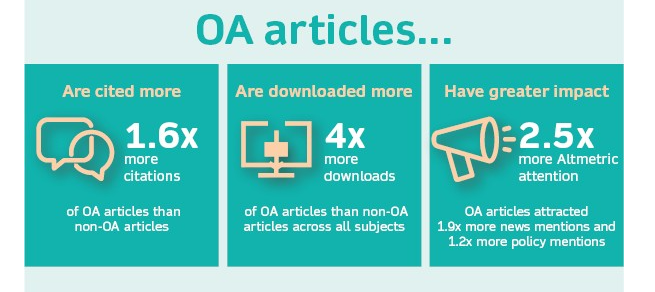Go back
Open Access and Plan S: 5 key facts about Wellcome’s OA policy
02/01/2021
As the chimes of Big Ben welcomed in 2021, Wellcome’s Plan S-aligned Open Access (OA) policy came into effect.
This updated policy will ensure that all research articles which arise from our funding – and are submitted for publication from New Year’s Day – are made OA at the time of publication. Crucially, these works must be openly licensed (CC BY, or CC BY-ND by exception), thus ensuring that others can build upon and re-use this content.
If you are a Wellcome-funded researcher, here are five key facts about our new policy to be aware of:
1. You can continue to seek publication in your journal of choice
Wellcome’s OA policy supports author choice. As such, you can continue to seek publication in any peer reviewed journal. The only requirement is that research articles, which arise from our funding and are accepted for publication in a peer-reviewed journal, must be made OA at the time of publication, be openly licensed and accessible from Europe PMC.
2. You can consult the Journal Checker Tool to determine available routes to compliance
Our OA policy, in line with Plan S, supports three routes to compliance:
Route 1: Publish in a fully OA journal or platform and the publisher will make the Version of Record OA in PMC and Europe PMC.
Route 2: Publish in a subscription journal and make the Author Accepted Manuscript OA through Europe PMC.
Note that from 1/1/2021 the Wellcome grant conditions have been updated such that grantholders will automatically apply a CC BY licence to all future author accepted manuscripts reporting original research supported in whole, or in part, by our grant funding.
Route 3: Publish in a subscription journal through a transformative arrangement that is available to you and/or your academic institution. Under this route, the publisher will make the Version of Record OA in PMC and Europe PMC.
The Journal Checker Tool will advise you on which route(s) are supported by your journal of choice. Routes 1 and 3 are preferred.
3. Wellcome will continue to cover OA publication costs
In line with our commitment to support OA publication fees, Wellcome will continue to cover the costs of research articles arising from its funding. Specifically, we will cover publication costs in fully OA journals and platforms, and for journals which have been designated as Transformative Journals.
We also allow our OA funds to be used by organisations who enter into Transformative Agreements with publishers to help cover the “publish” element of Wellcome-funded research articles.
In the current financial year, we have allocated more than £8m to support OA publication costs.
Note, however, from 1st January 2021 our funds cannot be used to cover OA publication costs in subscription journals (“hybrid OA”), unless they offer a transformative arrangement, accessible to Wellcome-funded researchers.
4. OA articles have greater impact than non-OA articles
Making your research available to all is not only the right thing to do, it is the smart thing to do.
Data published by Springer Nature (Figure 1) shows that OA articles, compared with non-OA articles are cited more, downloaded more and have greater impact.

Figure 1: Infographic published by Springer Nature
5. The venue of publication is not important
Wellcome, in common with many other funders, has reasserted our commitment that when we assess research outputs during funding decisions, we consider the intrinsic merit of the work, not the title of the journal or publisher.
Moreover, all Wellcome-funded organisations must also publicly commit to this principle. For example, they can sign the San Francisco Declaration on Research Assessment, the Leiden Manifesto or equivalent.
We have produced guidance for organisations on responsible and fair approaches for research assessment, that sets out three high-level requirements and other activities they could consider to support these.
Plan S
Wellcome’s OA policy is fully aligned with Plan S, the initiative spearheaded by Science Europe and the European Commission now supported by 24 other funders.
Original article published by Robert Kiley, Head of Open Research, Wellcome, on LinkedIn on January 1st, 2021
Robert Kiley
Robert Kiley is Head of Strategy at cOAlition S, working to accelerate the transition to full and immediate Open Access. Prior to this, he was Head of Open Research at the Wellcome Trust, where he was responsible for developing and implementing their open research strategy. Over the past decade, Robert has played a leading role in the implementation of Wellcome's open access policy and overseeing the development of the Europe PubMed Central repository. He also led the development - in partnership with Howard Hughes Medical Institute, the Max Planck Society - of eLife, the open-access research journal, launched in 2012. More recently he championed the work to create a new open publishing platform for Wellcome researchers – Wellcome Open Research.
Robert is a qualified librarian and an Associate Member of CILIP. He is a Board member of Open Research Central and served for 6 years on the ORCID Board of Directors.
View all posts by
Robert Kiley



